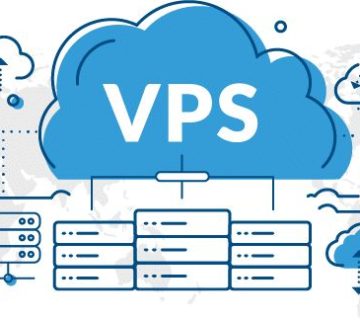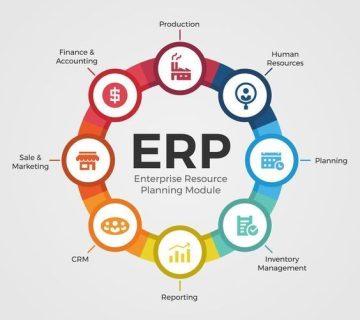As we delve into the topic, it will become apparent that embracing green initiatives is vital for the growth and longevity of such enterprises. Sustainable practices not only benefit the environment but also contribute to cost-efficiency and societal goodwill.
The imperative to integrate eco-friendly practices in the tech industry is ever more evident. Understanding this necessity is a fundamental step towards aligning businesses with a sustainable trajectory. The tech industry, known for its rapid advancements, holds the potential to lead the way in sustainable practices, setting an example for others to follow. This shift in mindset and approach towards sustainability is a pivotal moment in the tech world.
The journey towards sustainability is not merely a choice but a responsibility that tech businesses should actively embrace. By recognizing this urgency and committing to green initiatives, small tech businesses can pave the way for a more sustainable future, ensuring their operations resonate with environmental consciousness. It’s a transformation that holds promise for businesses, the environment, and society at large.
Implementing Environmentally Friendly Practices
Energy Efficiency in Operations
Implementing environmentally friendly practices within a tech business is not just an option; it’s an essential stride towards a sustainable future. Energy efficiency stands at the forefront of this journey, promising to minimize the environmental footprint. Tech operations consume substantial energy, making it imperative to streamline processes and technologies for maximum efficiency.
Embracing energy-efficient practices entails a comprehensive assessment of energy consumption patterns and technology usage. Simple measures like using energy-efficient appliances, implementing smart office designs, and optimizing server operations can significantly contribute to reducing energy consumption. It’s a holistic approach that can be adopted across various operational facets of a tech business.
Efficiency can also be amplified by leveraging renewable energy sources, such as solar or wind power. Transitioning to these cleaner energy alternatives not only aligns with sustainability goals but can also lead to cost savings in the long run. Additionally, fostering a culture of energy consciousness among employees can contribute to a significant reduction in overall energy usage.
Incorporating energy efficiency measures doesn’t just end with implementation; it’s an ongoing process of monitoring, adapting, and improving. Small tech businesses need to continually evaluate their energy consumption patterns, seek opportunities for optimization, and stay updated with advancements in energy-saving technologies. By doing so, they can pioneer a greener path in the tech industry, ensuring operations are as environmentally sustainable as possible.
Waste Reduction and Recycling Strategies
Minimizing waste and embracing recycling strategies is an essential pillar of sustainability for any tech business. Effective waste reduction involves adopting a proactive approach to limit the amount of waste generated within the company. This can include assessing current waste generation, identifying areas for improvement, and implementing measures to reduce unnecessary waste.
Recycling, on the other hand, involves diverting materials from landfills and repurposing them for other uses. Tech businesses can recycle a wide array of materials like electronic components, packaging materials, and more. This not only reduces waste but also contributes to a circular economy, where materials are reused and recycled, thus conserving resources and reducing the need for raw materials.
One of the fundamental steps towards efficient waste management is educating employees about the importance of waste reduction and proper recycling practices. Encouraging a culture of responsibility and consciousness can significantly impact the overall waste output of the business. Additionally, partnering with waste management companies that specialize in electronics recycling can ensure that waste is handled and disposed of responsibly, minimizing the environmental impact.
Incorporating waste reduction and recycling strategies within a tech business is not only about environmental stewardship but also about fostering a sustainable ethos that resonates with employees and clients alike. It’s a holistic approach that showcases the company’s commitment to responsible business practices, making it an attractive choice for environmentally conscious stakeholders.
Carbon Footprint Reduction
Reducing your tech business’s carbon footprint is pivotal in contributing to a sustainable environment. It involves a proactive approach to measuring and mitigating the amount of greenhouse gases, primarily carbon dioxide, released into the atmosphere as a result of your business operations. Understanding and calculating your current carbon footprint is the initial step towards devising effective reduction strategies.
One powerful approach is optimizing energy usage, focusing on renewable energy sources, and encouraging energy-efficient practices. Utilizing energy from renewable sources like solar or wind can substantially cut down your carbon emissions. Moreover, implementing energy-efficient technologies and practices across operations, such as using LED lighting and energy-efficient appliances, can further decrease your carbon footprint.
Additionally, sustainable transportation options for employees can significantly contribute to carbon footprint reduction. Encouraging public transportation, cycling, or carpooling can help cut down emissions associated with daily commuting. Telecommuting and remote work options can also be explored to reduce the need for physical transportation.
Ultimately, adopting a comprehensive approach to minimize your carbon footprint not only demonstrates your commitment to sustainability but also can lead to cost savings and improved brand reputation. It’s a strategic move that aligns your tech business with global efforts to combat climate change, appealing to environmentally conscious stakeholders and customers.
Water Conservation Measures
Conserving water within your tech company is a crucial aspect of promoting sustainability. It involves a proactive approach to reducing water usage and implementing practices that contribute to the responsible management of this precious resource. To effectively conserve water, it’s essential to start by assessing your current water consumption and identifying areas where reduction is feasible.
Simple yet impactful measures include fixing leaks promptly and installing water-saving devices like aerators and low-flow toilets. Educating employees about the importance of water conservation and encouraging responsible usage in the workplace can also make a significant difference. It’s important to establish clear guidelines and best practices for water usage and ensure everyone is on board with the conservation efforts.
Moreover, integrating smart technologies and sensors within your workspace can optimize water usage by automating systems like irrigation and monitoring consumption. Collecting data on water usage can provide valuable insights to make informed decisions and further refine your conservation strategies.
Ultimately, by prioritizing water conservation, not only do you contribute to a more sustainable future, but you can also potentially reduce operational costs for your tech business. It’s a win-win situation, aligning your company with responsible environmental practices and appealing to a growing segment of eco-conscious customers and stakeholders.
Promoting Sustainable Supply Chains
Promoting sustainable supply chains is a strategic move for tech companies aiming to integrate environmental responsibility into their operations. It involves making deliberate choices when selecting suppliers, prioritising those that align with sustainability goals and exhibit eco-conscious practices.
To kickstart this process, research and vet potential suppliers to understand their commitment to sustainability. Assess their environmental policies, waste management practices, and overall approach to reducing their carbon footprint. Prioritizing suppliers with recognized certifications for sustainable practices ensures a higher level of environmental accountability.
Engage in open communication with suppliers, clearly outlining your sustainability expectations. Encourage them to adopt green initiatives, reduce packaging waste, and optimize transportation to minimize the overall environmental impact. Collaboration with like-minded suppliers fosters a culture of sustainability across the supply chain.
Regularly review your suppliers’ sustainability performance, encouraging continuous improvement and ensuring adherence to shared environmental objectives. Consider establishing long-term partnerships with suppliers that consistently demonstrate a genuine dedication to sustainability, creating a positive ripple effect in the industry and promoting a more eco-friendly tech sector.
A Greener Tomorrow
In conclusion, transforming your small tech business into an environmentally sustainable venture involves a series of purposeful actions and decisions. By implementing energy-efficient practices, embracing waste reduction and recycling, offsetting carbon emissions, conserving water, and promoting sustainable supply chains, your business can significantly reduce its environmental impact while remaining competitive and innovative in the tech industry.
By incorporating green initiatives into your business operations, you not only contribute to a greener tomorrow but also align your brand with the growing global movement towards sustainability. These efforts showcase your commitment to responsible business practices, attracting environmentally conscious customers and partners.
Embrace the opportunity to pioneer change within the tech sector, showing that a balance between technological advancement and environmental care is attainable and necessary. Small tech businesses can lead the way by setting an example for larger corporations, ultimately influencing a wider adoption of sustainable practices throughout the industry.
Remember, sustainability isn’t just about being environmentally responsible—it’s about future-proofing your business, enhancing your reputation, and making a positive difference in the world. Start your journey towards a greener future today, and watch as your business thrives while helping to preserve our planet for generations to come.
Contact us Today!



